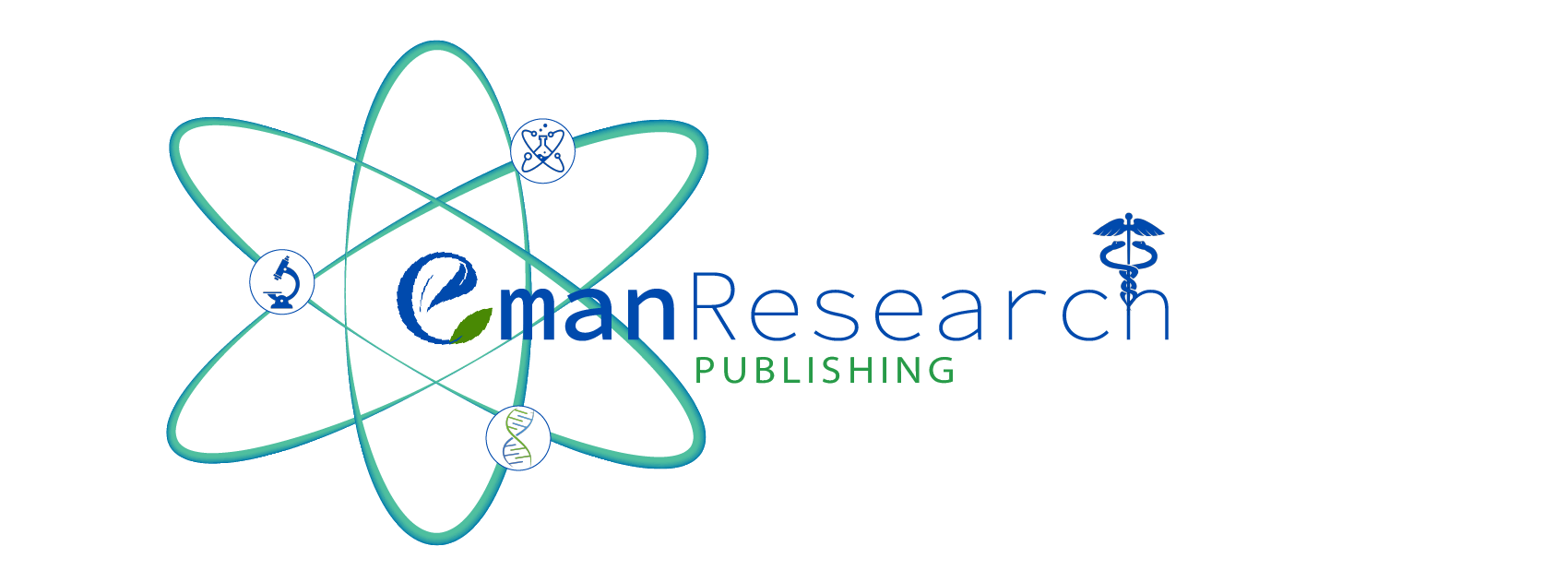EfficientNetB3-Based Transfer Learning Model for Accurate Classification of Acute Lymphoblastic Leukemia Blasts
R. Shiva Kumar 1, Joseph Prakash Mosiganti 2*
Integrative Biomedical Research (Former Journal of Angiotherapy) 8(6) 1-12 https://doi.org/10.25163/angiotherapy.869576
Submitted: 09 April 2024 Revised: 04 June 2024 Published: 06 June 2024
This study determined leukemia diagnostics by leveraging EfficientNetB3's transfer learning, improving accuracy and efficiency in blast cell classification.
Abstract
Background: Acute lymphoblastic leukemia (ALL) predominantly affects pediatric patients and is characterized by the proliferation of immature lymphoblasts in the bone marrow. This uncontrolled growth impairs normal hematopoiesis, leading to anemia, immunodeficiency, and increased susceptibility to infections. Accurate detection and classification of these immature blasts are crucial for effective treatment planning and monitoring. Methods: This study utilizes transfer learning (TL) to improve the detection of immature ALL blasts in microscopic images. We employed the EfficientNetB3 model, a convolutional neural network (CNN) known for its efficient scaling and superior performance. The model was pre-trained on large datasets and fine-tuned with a dataset of 15,135 images from Kaggle, encompassing ALL-positive and ALL-negative samples. Image preprocessing techniques such as normalization, noise reduction, and segmentation were applied to enhance data quality. Results: The proposed TL model achieved a high training accuracy, indicating effective learning from the provided data. At epoch 19, the model's validation accuracy reached 97.75%, demonstrating strong generalization capabilities. The confusion matrix analysis showed high true positive and true negative rates, with minimal false positives and false negatives, underscoring the model's precision and recall. Conclusion: The use of TL with EfficientNetB3 significantly enhances the accuracy and reliability of detecting immature ALL blasts in microscopic images. This approach addresses the challenges posed by limited labeled data and image quality inconsistencies, providing a robust tool for improving leukemia diagnostics. The findings suggest that TL models can be instrumental in advancing clinical decision-making and patient outcomes in ALL treatment.
Keywords: Acute Lymphoblastic Leukemia, Transfer Learning, EfficientNetB3, Deep Learning, Medical Image Analysis
References
Abd El-Ghany, S., Elmogy, M., & Abd El-Aziz, A. A. (2023). Computer-aided diagnosis system for blood diseases using EfficientNet-B3 based on a dynamic learning algorithm. Diagnostics, 13(3), 404.
Abed, H. I. A. (2022). Proposing efficient CNN models for the detection of lymphoblastic leukemia (ALL) using transfer learning. [PhD dissertation, XYZ University].
Abir, W. H., Uddin, M. F., Khanam, F. R., Tazin, T., Khan, M. M., Masud, M., & Aljahdali, S. (2022). Explainable AI in diagnosing and anticipating leukemia using transfer learning method. Computational Intelligence and Neuroscience, 2022, 1-10.
Ahmed, M. J., & Nayak, P. (2021). Detection of lymphoblastic leukemia using VGG19 model. In 2021 Fifth International Conference on I-SMAC (IoT in Social, Mobile, Analytics and Cloud) (I-SMAC) (pp. 716-723). IEEE.
Anilkumar, K. K., Manoj, V. J., & Sagi, T. M. (2022). Automated detection of B cell and T cell acute lymphoblastic leukemia using deep learning. IRBM, 43(5), 405-413.
Batool, A., & Byun, Y.-C. (2023). Lightweight EfficientNetB3 model based on depthwise separable convolutions for enhancing classification of leukemia white blood cell images. IEEE Access, 2023, 1-10.
Boldú, L., Merino, A., Acevedo, A., Molina, A., & Rodellar, J. (2021). A deep learning model (ALNet) for the diagnosis of acute leukaemia lineage using peripheral blood cell images. Computer Methods and Programs in Biomedicine, 202, 105999.
Das, P. K., & Meher, S. (2021). An efficient deep convolutional neural network based detection and classification of acute lymphoblastic leukemia. Expert Systems with Applications, 183, 115311.
Gupta, A., & Gupta, R. (2019). ALL challenge dataset of ISBI 2019 [Data set]. The Cancer Imaging Archive. https://doi.org/10.7937/tcia.2019.dc64i46r.
Hayat, U., Yasir, M., & Rehman, A. U. (2022). Transfer learning for the medical diagnosis of acute leukemia cancer. Journal of Healthcare Engineering, 2022, 1-10.
Inaba, H., & Pui, C.-H. (2021). Advances in the diagnosis and treatment of pediatric acute lymphoblastic leukemia. Journal of Clinical Medicine, 10(9), 1926.
Jha, K. K., & Dutta, H. S. (2019). Mutual information based hybrid model and deep learning for acute lymphocytic leukemia detection in single cell blood smear images. Computer Methods and Programs in Biomedicine, 179, 104987.
Jiang, Z., Dong, Z., Wang, L., & Jiang, W. (2021). Method for diagnosis of acute lymphoblastic leukemia based on ViT-CNN ensemble model. Computational Intelligence and Neuroscience, 2021, 1-10.
Khandekar, R., Shastry, P., Jaishankar, S., Faust, O., & Sampathila, N. (2021). Automated blast cell detection for acute lymphoblastic leukemia diagnosis. Biomedical Signal Processing and Control, 68, 102690.
Kruse, A., Abdel-Azim, N., Kim, H. N., Ruan, Y., Phan, V., Ogana, H., Wang, W., et al. (2020). Minimal residual disease detection in acute lymphoblastic leukemia. International Journal of Molecular Sciences, 21(3), 1054.
Maaliw, R. R., Alon, A. S., Lagman, A. C., Garcia, M. B., Susa, J. A. B., Reyes, R. C., Fernando-Raguro, M. C., & Hernandez, A. A. (2022). A multistage transfer learning approach for acute lymphoblastic leukemia classification. In 2022 IEEE 13th Annual Ubiquitous Computing, Electronics & Mobile Communication Conference (UEMCON) (pp. 0488-0495). IEEE.
Nasir, M. U., Khan, M. F., Khan, M. A., Zubair, M., Abbas, S., Alharbi, M., & Akhtaruzzaman, M. (2023). Hematologic cancer detection using white blood cancerous cells empowered with transfer learning and image processing. Journal of Healthcare Engineering, 2023, 1-10.
Ramaneswaran, S., Srinivasan, K., Vincent, P. M. D. R., & Chang, C.-Y. (2021). Hybrid inception v3 XGBoost model for acute lymphoblastic leukemia classification. Computational and Mathematical Methods in Medicine, 2021, 1-10.
Saeed, A., Shoukat, S., Shehzad, K., Ahmad, I., Eshmawi, A., Amin, A. H., & Tag-Eldin, E. (2022). A deep learning-based approach for the diagnosis of acute lymphoblastic leukemia. Electronics, 11(19), 3168.
Safuan, S. N. M., Tomari, M. R. M., Zakaria, W. N. W., Othman, N., & Suriani, N. S. (2020). Computer-aided system (CAS) of lymphoblast classification for acute lymphoblastic leukemia (ALL) detection using various pre-trained models. In 2020 IEEE Student Conference on Research and Development (SCOReD) (pp. 411-415). IEEE.
Sriram, G., Babu, T. R., Praveena, R., & Anand, J. V. (2022). Classification of leukemia and leukemoid using VGG-16 convolutional neural network architecture. Molecular & Cellular Biomechanics, 19(2), 1-10.
View Dimensions
View Altmetric
Save
Citation
View
Share


